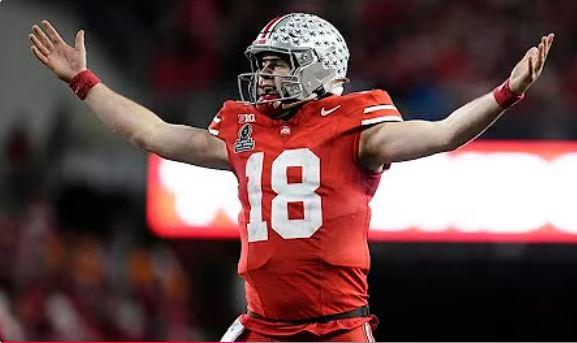Hockey is a game of numbers—goals, assists, hits, faceoff percentages, saves percentages. Statistics can tell you whether a player is a sniper, a playmaker, a power-play specialist, or a defensive stud. With the rise of advanced stats, the analysis of players and games has become more intricate and, at times, overwhelming. While data can enhance our understanding of hockey, leaning too heavily on it risks missing the essence of the game: the immeasurable factors that shape every shift and every outcome. If you recall, we have recently explored some of them for goaltenders.
Hockey Is a Team Game
Unlike with individual sports, no player’s stats exist in isolation. A stellar defensive player can have lackluster numbers if their teammates falter or their goalie struggles. This doesn’t diminish their defensive prowess, but those fixated on stats may argue otherwise. Statistics, no matter how sophisticated, cannot capture every nuance.
While many aspects of hockey can’t be measured with numbers, many others are intuitive; those require lived experience to fully appreciate. Just as one can imagine battling an illness but only truly understand it by living through it, so too does the depth of hockey’s intangibles reveal itself through experience.
Let’s explore the unquantifiable elements that profoundly impact the game.
Intimidation
The impact of physical play often sparks debate, especially since its effects can’t be directly measured. An enforcer’s presence or a team’s physicality can alter the way opponents play. Some players hesitate to go into corners, shy away from net-front battles, or rush their decisions under pressure. Watching their body language on the ice reveals how they’re affected—not a stat sheet.
Another proof of some of the intangibles, in hockey, that affect the game although they cannot be measured by stats, as "advanced" as they might be. #GoHabsGo #Habs
— JD Lagrange (@jdlagrange.bsky.social) 2024-11-20T14:47:20.329Z
A perfect example is the Montreal Canadiens’ upset of the Toronto Maple Leafs in the 2021 playoffs. The Canadiens wore down their opponents with relentless forechecking and punishing hits, leaving Toronto’s star players less effective as the series progressed. Who forgot the physical battles between Josh Anderson and Jake Muzzin, who has only played 51 games since then, likely forced to retire? Statistics alone can’t capture how physical dominance “tenderized” the Leafs.
Grit and Character
How do you measure grit? Hits, fights, and blocked shots offer a glimpse, but they don’t tell the whole story. True grit lies in a player’s willingness to sacrifice, battle through adversity, and do the dirty work for their team. Marc Bergevin, the Canadiens’ former GM, often emphasized character when building a roster. While some mocked him, every GM now looks for character as a critical quality.
When talent is evenly matched, grit and character often separate winners from losers.
Pain Tolerance
Playing through pain is another intangible that stats overlook. Some players won’t take the ice unless they’re 100%, while others push through injuries to help their team. In the Canadiens’ 2021 playoff run, Shea Weber and Carey Price played through excruciating pain, sacrificing their long-term health for the team. Analysts might call their performances slumps, but teammates and coaches saw warriors giving their all.
Both Weber and Price had to call it a career, as did teammate Paul Byron. An example of that is Weber, who played in the Stanley Cup final with a torn UCL in his thumb, a torn ankle tendon, and a meniscus injury in his knee. He also tore his groin in the semifinal series.
Defensive and Offensive Responsibility
Defensive metrics like blocked shots and takeaways don’t fully encapsulate a player’s ability to read the game, make smart decisions, or support their teammates. Similarly, offensive stats miss the subtleties of positioning, creating space, or drawing defenders to open lanes for others. These are the little things coaches notice that can swing a game’s momentum.
Hockey IQ
A player’s hockey IQ—their ability to anticipate plays, make smart decisions, and adapt to game situations—can’t be measured with numbers. Wayne Gretzky, the greatest hockey mind in history, excelled not because of his physical tools but because he saw the game unfold two or three steps ahead of everyone else. Stats reflected his dominance but didn’t explain how he achieved it.
Skating Ability
Speed, strength on skates, transitions, and balance are critical to a player’s success, yet they’re not quantified in traditional or advanced stats. Skating nuances, like a player’s ability to maintain effectiveness with or without the puck, can only be appreciated through the eye test.
Chemistry
Chemistry is another unmeasurable element that can make or break a line or pairing. Three elite players might struggle to produce, while a less-skilled player clicks perfectly with two stars. Chemistry creates opportunities, generates goals, and prevents mistakes—all without leaving a statistical footprint.
Leadership and Team Dynamics
Leadership is often overlooked by stat-driven analysis but is highly valued by coaches and GMs. Leaders motivate teammates, keep spirits high during slumps, and set an example with their effort and attitude. Players like Mark Messier or Shea Weber commanded respect in ways that transcended on-ice performance. Similarly, low-maintenance players who consistently deliver without fuss allow coaches to focus on larger team issues.
Adaptability
Adaptable players are invaluable. A forward who can seamlessly switch positions or a defenseman who excels on either side provides flexibility that can be the difference between winning and losing. This versatility doesn’t show up in stat sheets but is indispensable in tight situations.
Conclusion
While advanced stats have carved out a niche in hockey analysis, they’re just one piece of the puzzle. The game’s unmeasurable qualities—grit, character, leadership, adaptability, and more—are equally vital. Statistics may complement the understanding of hockey, but they don’t tell the whole story.
Hockey isn’t just about numbers; it’s about heart, determination, and the things you can only see with a trained eye. By overemphasizing analytics, we risk losing sight of what truly makes this game special. Balance is key—acknowledging the numbers while embracing the intangibles that define hockey.





